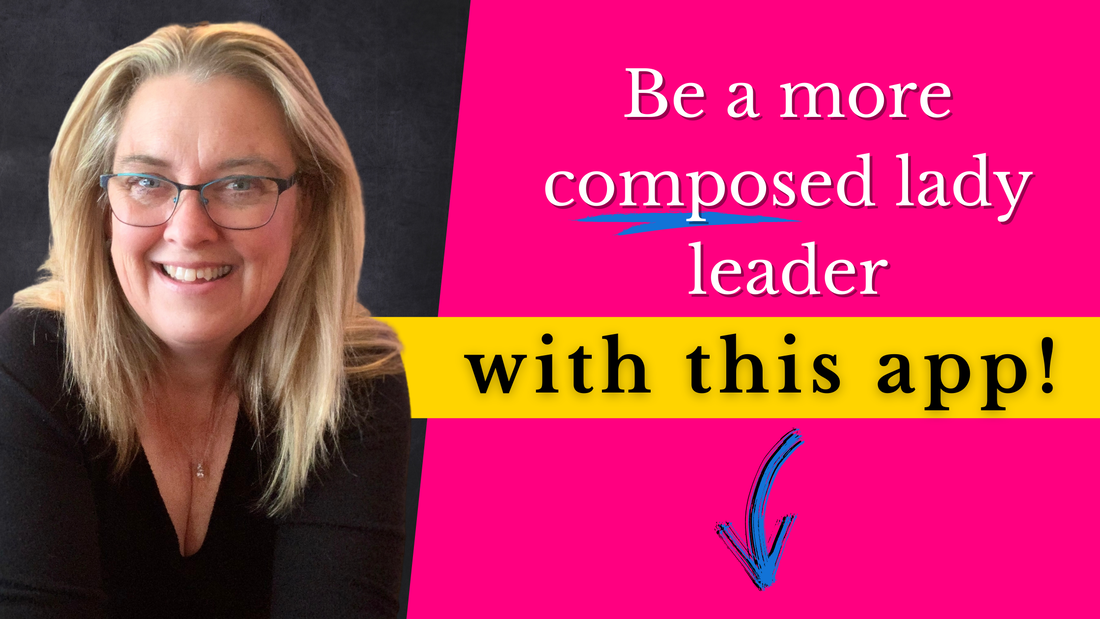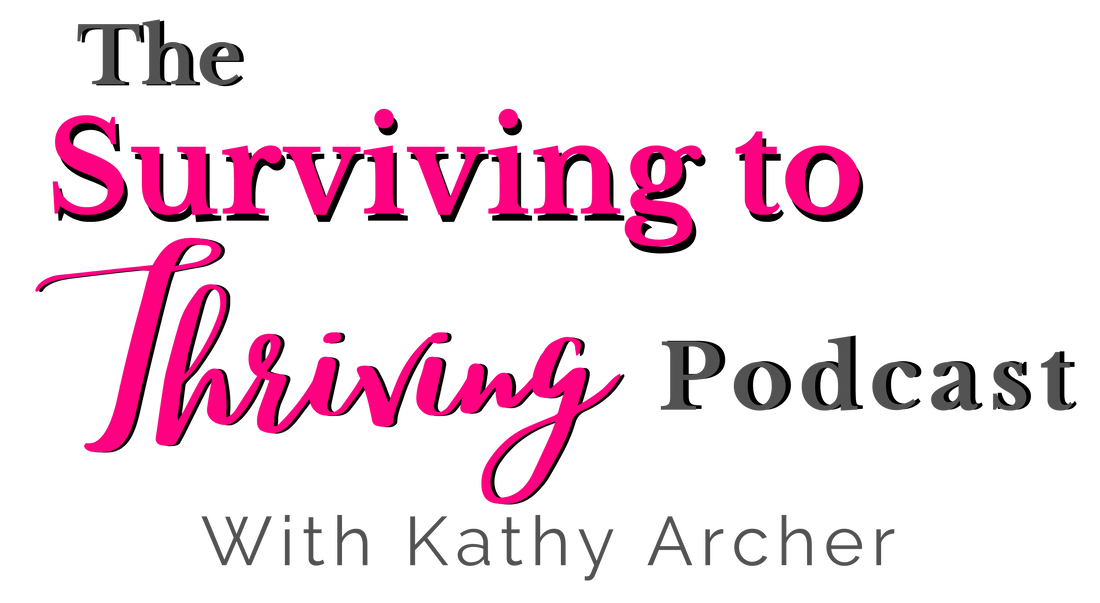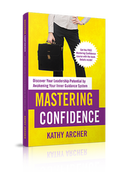|
As nonprofit leaders, we spend a lot of time focused on our client's and community's needs and ensuring they have the tools to be their best selves. But, sometimes, we forget to turn that focus around and use those same tools ourselves.
Recently I was talking to a client about setting goals and how to break them down. She laughed and said this is what we do with our disability clients. I agreed and chuckled that I've been writing goals for clients since I was in college! Another time I was working with a group of family visitors. They were so excited about the resources they had just received to help families expand their children's emotional literacy. Funnily enough, I was working with the leaders to develop their emotional intelligence. The books, flashcards, and stuffies depicting certain emotions could also be tools for team conversations to help them expand their emotional literacy. In leadership, we get hyper-focused on getting things done, achieving results, and forgetting that we need to grow and develop. And in many cases, we have the tools already available to do that. Just like there is a focus on increasing emotional vocabulary for children, there is more and more focus on helping leaders improve their emotional vocabulary and thus their emotional intelligence. So let's explore how increasing our emotional vocabulary works. Understanding the language of emotions Did you know those anxious thoughts you experience indicate that you feel you don't have control over something? When you realize this, you can start to identify what you do have control over and what you don't. It helps you prioritize, ask for help or let go of what you can't control. Were you aware that anger gives you the energy to break through a barrier that is in the way of what you want? Knowing that can help you identify what that barrier is and what to do about it. Anger is an action emotion. Conversely, anger differs from feeling resigned, which has you giving up. Stop ignoring your emotions Far too often, we overlook the messages our emotions are giving us. But when you learn to understand what certain emotions mean, you'll be a smarter leader! Leaders manage heavy loads. With this burden, often things come at the leader that triggers them and their emotions. However, many of us, especially women who are fearful of being called emotional, try to suppress, shut off or tune out those emotions. This is what happens when you ignore your emotions Two things can happen when you try to ignore your emotions as you push through to-do lists, meeting and dealing with people.
Learning to explore what you are feeling for valuable data It's valuable data I want to focus on for a moment. When you take time to understand how your emotions are informing you, you'll be better able to deal with all of that. Increasing your emotional literacy helps you understand what your emotions mean As I've developed my leadership, I've also learned to build my emotional intelligence. To do that, I've needed to increase my emotional literacy. I needed to learn the language of emotions. I have had to take apart the words surrounding emotions and feelings, understand what they mean, and label what I'm feeling with finer emotional granularity. Here's how I increased my emotional literacy To increase my emotional literacy, I've had to figure out what's happening inside me, why, what it means, and where it's pointing me. To help me do that, I engage in self-reflective practices such as journaling. One of my favourite tools to help me decipher my emotions is the dictionary and thesaurus app. Listen to my real-life example I sat down to journal one evening after an incident with someone that didn't go so great. I knew I was still stewing about it by sensing the tightness in my chest and jaw! I was irritated and annoyed! A quick search on the thesaurus app told me that a synonym for annoyed is not happy. That helped me question what would make me happy. Or perhaps what is not making me happy. Some insights came from that, but I dug deeper. Continuing to scroll through synonyms, I questioned whether I was dissatisfied, gloomy, or miserable. Each of those words has a slightly different flavour. But none of them nailed it. Sometimes, when I look through the thesaurus, I'll see a word and shrug no, that's not it. But when the word really hits me, it physically hits me. That happened when I saw the phrase let down. I nodded my head! Bingo. I was annoyed because I thought someone would help me out, and they didn't. That meant I had to pick up the pieces, and I didn't have time. I felt let down. Still digging deeper, I realized that feeling disappointed is synonymous with feeling let down. Suddenly, I realized that I felt both let down. Also, I felt disappointed with this person. Both of those emotions led to my irritation and annoyance. How my increased understanding helped me talk to the person That increased awareness, both by developing my emotional literacy and grinding down the emotions to find the specific ones (emotional granularity), changed my mindset and the conversation I was about to have with that person. OLD WAY: Staying at being annoyed and perhaps angry, I might have reacted with a harsher tone, a level of judgment and maybe even a bit of arrogance. NEW WAY: However, my tone was softer when I talked with that person with this new awareness.
It's good to remember... Here's the thing:
ADDITIONAL RESOURCES My thoughts above come after articles I've written to break down the components of emotional intelligence. I hope to help you understand emotional intelligence and develop your emotional intelligence. Here are more articles for you. This article looked at The 8 most overlooked definitions in leadership and why they matter In this article, I covered the following definitions.
In the article Being composed doesn't cut it. You'll need to learn to regain your composure, I looked at these two questions
In the article 3 Steps to Becoming a Better Leader (and having fewer regrets), I help you understand emotional intelligence and how to increase yours. Another article you may want to explore is Women Leaders that expand their Emotional Literacy will increase their Emotional Intelligence. Your turn - How will you increase your emotional intelligence? In my work with women leaders in the nonprofit sector, I provide training and self-reflective tools to help increase their self-awareness. Increased self-awareness gives you an increased ability to bounce back after leadership adversities. Because that's what you need to do to ditch survival mode; Bounce back quicker when you get hit. If I was your coach, I'd be asking you to engage in reflective practices to increase your self-awareness, your emotional literacy and thus your emotional intelligence. How will you engage in self-reflective reflective practices today? This month in my membership, I share the difference between feeling stressed and overwhelmed. There are subtle differences but substantial differences between the two of these. How they impact you, your team and how you deal with them are different. When you understand the difference between those, you'll be able to prevent yourself from going from stressed, overwhelmed to burnt out!! If you want to learn more about the training I offer, check out The Training Library.
0 Comments
Your comment will be posted after it is approved.
Leave a Reply. |

Available on Amazon
Archives
May 2024
|
|
Leadership TRAINING for Nonprofit Leaders
Become a confident and competent nonprofit Leader: Join The Training Library membership Executive and Leadership COACHING Leadership Coaching for Nonprofit Executives, Leaders and ManagerCoaching |
PODCAST for Nonprofit Leaders
The Surviving to Thriving podcast: Strategies, systems and support to lead your nonprofit with confidence FREE RESOURCES to Grow your Leadership Skills Free Leadership Training Resources, Worksheets and Templates |
Become a CONFIDENT LEADER
|




 RSS Feed
RSS Feed
